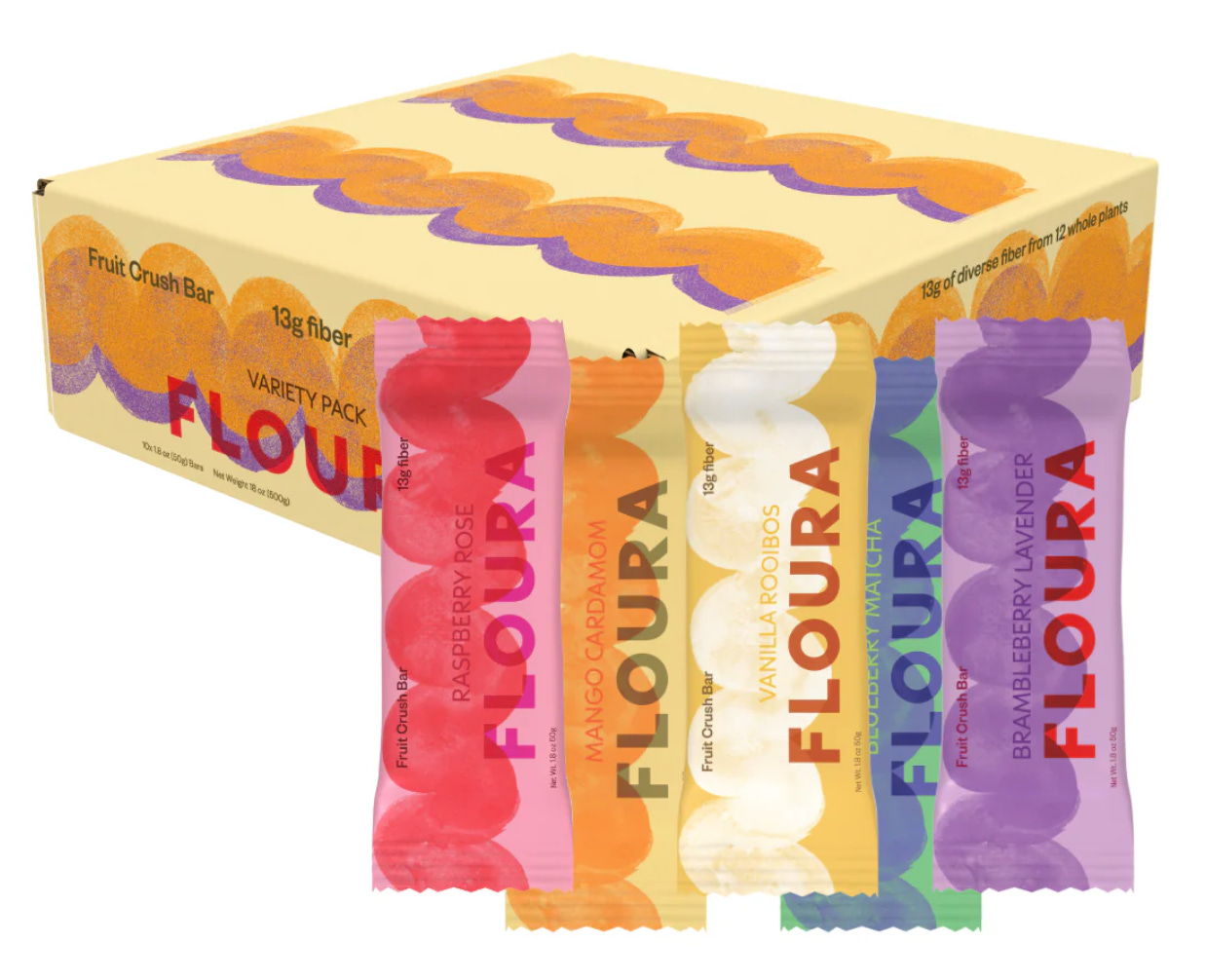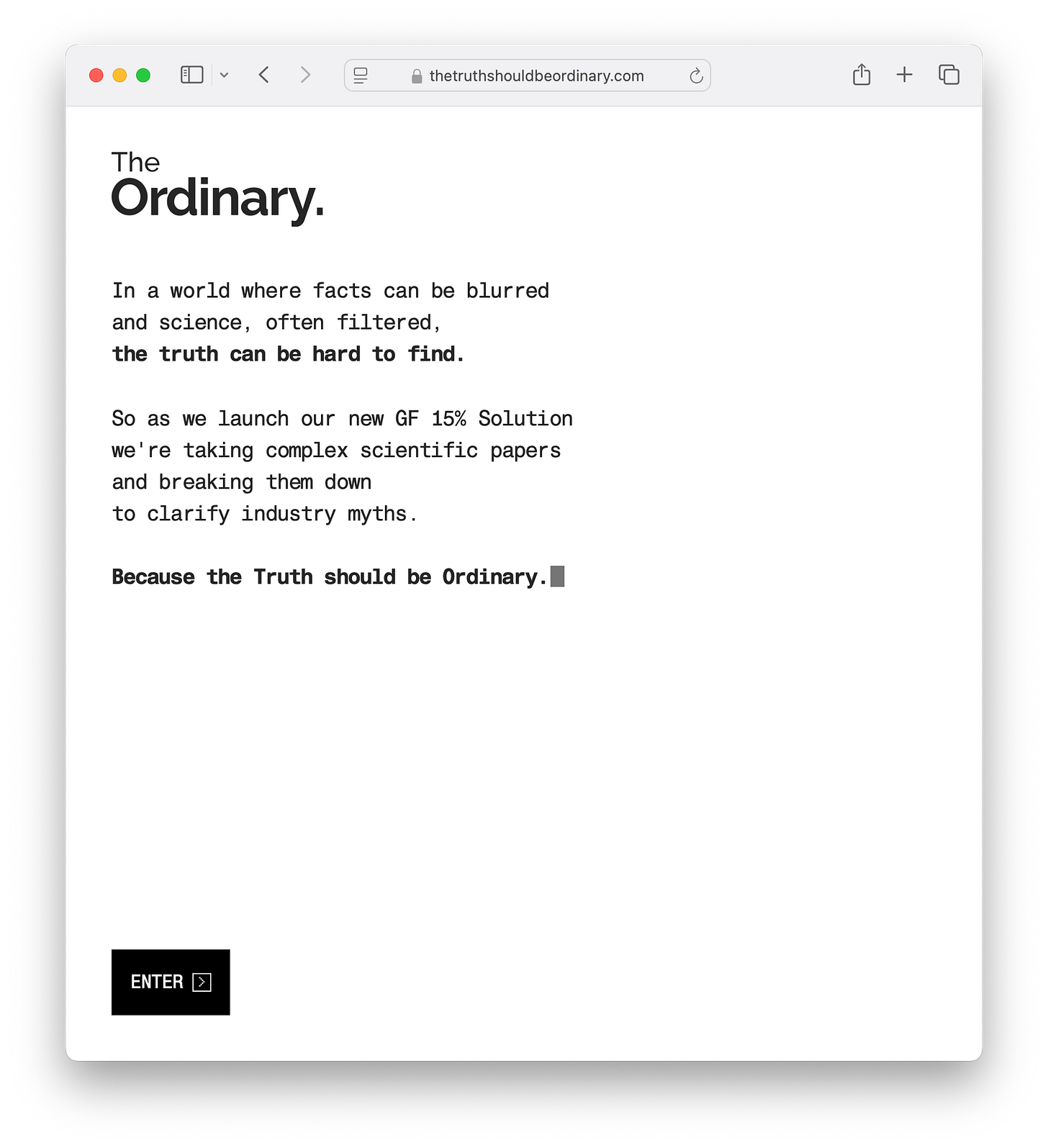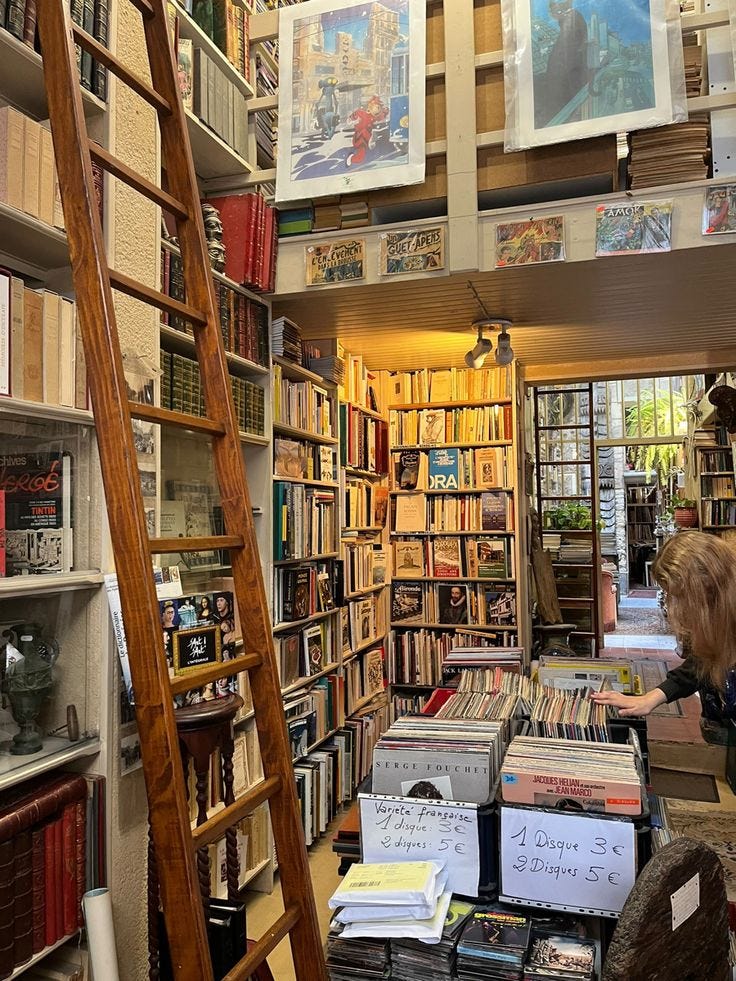Is high fiber the new high protein?
Plus: brand worlds, The Ordinary's new campaign, and more 🌐
Welcome back to Brandscape!
I hope your week is off to a great start.
At this point, we’re all familiar with the high protein craze. But, to be honest, I thought we hit peak protein a while ago. In the mid-2010s, brands like Gainful and RxBar made high protein mainstream, allowing high protein foods to transcend niche fitness communities. And, of course, there’s always been trusty Premier Protein.
But now, it seems we’re living in a 2.0 version of this craze. Just yesterday, Emily Sundberg of Feed Me covered the immense popularity of David bars, which boast 28g of protein. We’ve seen the unexpected rise of cottage cheese, which is high in protein. Even pantry mainstays like Cheerios are joining the high protein movement with their new protein cereals.
However, paralleling the hype around protein is the hype around gut health. Prebiotics and fiber products designed to heal one’s gut and aid digestion have soared in popularity in recent years. Think: Seed and Olipop. But, besides FiberOne bars, I couldn’t really think of any food brands in the space. Until…
Floura 🍈
Floura, a new brand founded by Jeni Britton, is working to provide a simple and sustainable fiber solution. You may know Jeni as the founder of Jeni’s Splendid Ice Creams. If you haven’t heard her story, I’d definitely recommend her episode of How I Built This.
She was inspired to start Floura after experiencing the benefits of increased fiber intake firsthand. As she explored the idea of Floura, her thesis was that higher fiber diets could help others feel better, too. According to the National Institutes of Health, only 5% of the U.S. population hits their recommended fiber targets. This target ranges from 21-38 grams depending on age and sex.
Floura’s Fruit Crush Bars include 13 grams of diverse fiber, which they claim can help you meet 46% of your daily fiber needs. They have 5 flavors: Brambleberry Lavender, Raspberry Rose, Blueberry Matcha, Vanilla Rooibos, and Mango Cardamom. Each bar is made up of 12 different plants, including fermented watermelon rinds and apple cores. They’ve partnered with F&S Fresh Foods, a New Jersey-based produce processor and distributor, to convert food scraps that would’ve otherwise gone to waste into Fruit Crush Bar ingredients. Through this partnership, Floura aims to revert 100 million pounds of produce trimmings from landfills annually.
Their packaging is straight out of Whole Foods with its organic and natural feel. The watercolor squiggle (?) motif is repeated on all the packaging and contrasts nicely with the bold type. You can find Floura’s colorful wrappers on shelves at Pop Up Grocer.
I think Floura’s timing is pretty perfect. Their differentiated product will help them carve out a niche in the quickly-growing high fiber category. It’s estimated that the dietary fiber market will grow by 3.97 billion USD in the 2024-2028 period.
So, what do you think? Is high fiber the new high protein? Let me know.
PS - I ordered the variety pack and it arrives today. Head over to @readbrandscape for a review!
Headlines of the week 📰
Why do certain brands resonate so strongly with you? The answer lies in their brand world. In this article, Chloe Gordon from The Dieline dives into “brand worlds,” which encompass everything a brand does to create a universe tangential to their product offerings, including design, activations, events, and more. Emma Apple Chozick explained how “[m]ulti-dimensional experiences help brands feel like more than just a product or service; they become something consumers want to be part of.” This is a must read.
Palona AI raised $10 million in seed funding. The AI startup enables retailers to use AI sales agents to connect with buyers through a variety of touchpoints including text and video. AI agents are generating a lot of buzz right now as they mark the next step in the AI revolution.
The Ordinary centers facts in their new campaign. Skincare brand The Ordinary recently launched TheTruthShouldBeOrdinary.com alongside their new GF 15% serum. The website features reports/whitepapers aimed at combating misinformation surrounding animal testing, aluminum deodorants, and more. I think this is a great form of thought leadership and it honestly reminds me of what B2B SaaS companies do with content like eBooks to build credibility.
Want to support your local bookseller? Buy an e-book on bookshop.org. Capitalizing on the popularity of Amazon’s Kindle and seeking to support independent bookstores, bookshop.org will now allow independent stores to offer e-books on the platform. Their payment structure ensures the majority of profit from sales goes back to the sellers themselves.
Thanks for reading this week’s letter!
- Henry
Interested in partnering with Brandscape? Reach out at readbrandscape@gmail.com 📥
Brandscape is a weekly newsletter covering marketing, brand, consumer insights, and design — all through the lens of a college student.
If you enjoyed this letter, please consider sharing with a friend ↓
Get in touch 📧
Reach out at readbrandscape@gmail.com
Follow Brandscape on Instagram
Connect with me on LinkedIn
Check out my website









